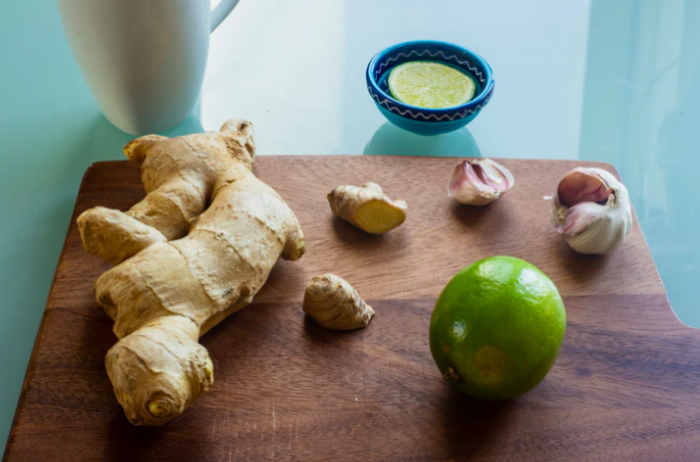*Elephant is not your doctor or hospital. Our lawyers would say “this web site is not designed to, and should not be construed to provide medical advice, professional diagnosis, opinion or treatment to you or any other individual, and is not intended as a substitute for medical or professional care and treatment. Always consult a health professional before trying out new home therapies or changing your diet.” But we can’t afford lawyers, and you knew all that. ~ Ed.
~
Elephant’s Continually-updating Coronavirus Diary. ~ Waylon
~
All we hear or read or see these days is latest news reports about the coronavirus and the increasing number of infected and deceased patients.
It’s difficult to not be impacted by the uncertainty and ongoing conversations, which can lead to increased anxiety and a compromised immune system. Ayurveda, the sister science of yoga, has much to offer in the way of enhancing our emotional, mental, and physical health and wellness.
Here are the five things you can do to take care of yourself at this time:
1. Drink warm water first thing in the morning.
Ayurveda can help build a foundation for immunity. It teaches us to drink a glass of warm water as soon as you wake up as it aids in digestion. When we sleep, our body accumulates toxins and waste. Drinking warm water immediately after waking up stimulates the digestive and excretory system, which helps expel waste material and toxins from the body.
Warm water also relieves nasal congestion. With the coronavirus, which causes a highly contagious respiratory disease COVID-19, you want to keep your respiratory system as healthy and functional as possible. Warm water also lowers stress and calms the nervous system, which is something most of us need help with at this time.
2. Get your sleep on.
“A balanced circadian clock (or your internal time-keeping for cycles of sleep and alertness) is directly linked to a strong immune system, according to Ayurveda,” says Dr. John Douillard, a globally recognized leader in the fields of natural health, Ayurveda, and sports medicine.
We recharge, repair, and restore our bodies when we sleep. That is why getting enough quality sleep at night is integral to our mental, physical, and emotional well-being. With a majority of the population working from home because of lockdowns in order to avoid the spread, people tell me that their schedule has become erratic. Many watch Netflix late into the night and wake up early to log into work.
Reality is that we are under duress at this time. Anxiety might be keeping people awake and on the edge.
Late, restless nights lead to mindless snacking, whereas getting adequate rest and sleep may help prevent excess weight gain and heart disease. And getting enough sleep and keeping our system strong can help more than just ourselves.
Most cities and countries are running out of space at hospitals because of COVID-19. As individuals, the least we can do to help healthcare workers is avoid burdening the system by doing our bit to keep ourselves rested and healthy.
3. Pick self-reliance over excessive dependence on online socialization.
With remote working and families both working and learning from home, the notifications and noise from electronic communications are constant. Most of us rely on others for our emotional well-being. The minute we get upset or happy, we feel the impulse to share whether on social media, in-person, via a text message, or on a phone call.
The impulsiveness and reactiveness of our times has trained us to never sit with our discomfort or be in the moment. Yes, it’s important to connect and schedule phone calls and video chats with friends and family during these times because we are more isolated than ever. Zoom happy hours and chai with chitchat can feel nourishing. On a professional level, it’s equally important to build and sustain a community with our colleagues and peers. Social distancing can feel insulating and overwhelming. But know when to stop.
It’s important to pause and disconnect. We can’t use the pandemic as an excuse for repeating our old patterns and behavior; disengaging with our own selves and drowning our inner voice with too much outside noise. Use this pandemic as a tool to get to know the real you and your purpose.
4. Build boundaries around negative emotions.
Ayurveda reminds us that it is important to be mindful of not just the foods that we eat, but also the thoughts and emotions we put into our body. We are all stressed at this point—it might sound like a gross generalization, but I believe that’s the truth. However, we all process stress differently.
I am sensitive, so people’s words and stories stay with me. A few days ago, a friend called me from a grocery store urging me to pack my bags and get out of New York City. I tried to calm her down. She said I needed to stock up on essentials and leave the city because no one in the Big Apple was going to survive. She got upset when I reiterated that we need to stay positive and take better care of ourselves. I compassionately but assertively conveyed to her that I was there for her if she needed me and would always hold space for her, but I didn’t want to be attacked or judged because I didn’t want to get sucked into negativity.
5. Eat foods that protect you.
Ayurveda recommends incorporating ginger, turmeric, coriander, cumin, black pepper, tulsi (holy basil), and other immunity boosting herbs and spices into your diet. Each of these herbs and spices have unique properties and their use can strengthen digestion, remove toxins, and help to absorb the nutrients in the food. Tulsi in particular does wonders to strengthen the respiratory system.
In general, according to Ayurveda, the basic idea is to choose a more alkaline diet (fruits, nuts, legumes, and vegetables) to improve your health and boost your immunity at this time. Acidic foods like meat, poultry, fish, most dairy products, eggs, grains, and alcohol are believed to make you vulnerable to illness. In other words, alkaline foods are considered to protect us.
Another tip: Don’t eat big, heavy meals too close to bedtime if you want to sleep well. They are difficult to digest and can lead to accumulation of ama aka toxins, which can compromise your immunity.
~
“The Ayurvedic route to great health involves two simple steps: 1. Doing less; 2. Being more.” ~ Shubhra Krishan
~
Relephant:











Read 3 comments and reply